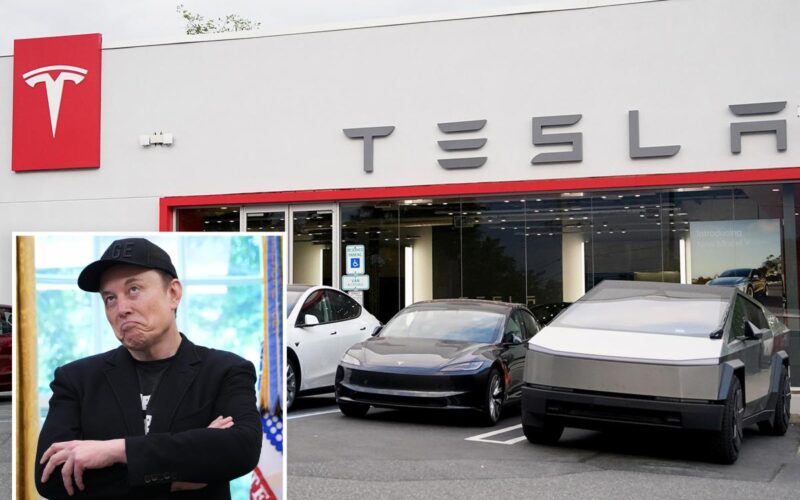Tesla is shifting gears from selling cars to renting them out after a collapse in US demand, launching a short-term rental program out of its stores as inventories swell across the country.
The company quietly rolled out the new service in early November, starting with its San Diego and Costa Mesa, Calif., locations, according to the news sites Electrek and Teslarati.
The program comes as Tesla shareholders approved a whopping $1 trillion pay package for CEO Elon Musk, who is banking that the company will gain significant traction in the humanoid robots industry.
Customers can rent a Tesla for three to seven days at a time at prices starting around $60 a day, depending on the model.
The program covers Model 3, Model Y, Model S, Model X and Cybertruck vehicles.
Each rental includes free “Supercharging” and “Full Self-Driving (Supervised),” Tesla’s advanced driver-assist feature, with no mileage limits.
But renters can’t take the cars out of the state where they’re booked.
Customers who decide to buy a Tesla within a week of their rental receive a $250 credit toward their purchase.
The program is the automaker’s latest attempt to put more drivers behind the wheel as US electric-vehicle sales falter following the expiration of the federal EV tax credit last quarter.
The loss of the $7,500 incentive has eaten into consumer demand while putting a dent in Tesla’s profit margins.
Just prior to the expiration of the tax credit, customers made a run on dealerships and snapped up last-minute deals — temporarily boosting the company’s sales.
The company’s new rental initiative is expected to expand beyond Southern California before the end of the year.
Tesla first hinted at entering the rental market two years ago when job listings surfaced for a “Tesla Rental Program” pilot in Texas.
The current rollout marks the first nationwide implementation of the concept.
The carmaker is framing the new rentals as an extended test-drive program aimed at converting hesitant buyers rather than competing with traditional agencies.
“Rent a Tesla and see how it makes every errand, commute, and road trip more fun,” the company said in an email to customers obtained by Teslarati.
Still, the move highlights the extent to which Tesla’s US sales have fallen amid price wars, higher financing costs and renewed competition from legacy automakers.
In the first eight months of 2025, Tesla’s sales in the US dipped by 24% compared to the same period a year ago.
By the third quarter of this year, Tesla’s market share fell to as low as 38% — down from nearly 80% several years ago and 49% a year earlier.
Hertz, which once bet big on electrifying its fleet with Teslas, has been unloading the vehicles over the past two years as plunging resale values eroded profits.
The Post has sought comment from Tesla.








